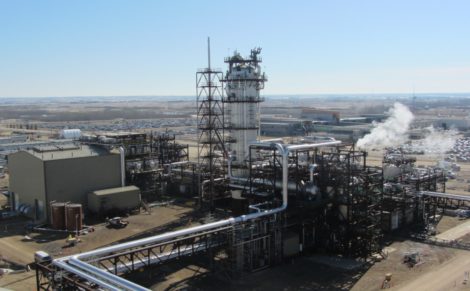-
Chemistry advances driving industrial carbon capture technologies – new publication
Date posted:
-
-
Post Author
Tracey Biller
-

A new paper published in Nature Reviews Chemistry, discusses how breakthroughs in chemistry are enabling more efficient and scalable carbon capture solutions for heavy industries such as oil and gas, steel, cement, aluminium and chemicals. Together, these industries account for 40 percent of global greenhouse gas emissions and 85 percent of manufacturing-related emissions.
The paper, titled “Chemistry advances driving industrial carbon capture technologies”, is the work of a team led by Professor Mercedes Maroto‑Valer, Director of the Industrial Decarbonisation Research and Innovation Centre (IDRIC) and Director of the Research Centre for Carbon Solutions (RCCS) at Heriot-Watt University, and Dr Steve Griffiths, Professor and Vice Chancellor for Research at American University of Sharjah.
Research innovations covered include novel amine blends that reduce energy consumption by over 30 percent, metal-organic frameworks (MOFs) that can selectively capture CO2 with extremely high efficiency, and new electroswing technologies that operate at low temperature using renewable electricity instead of energy-intensive heating.
Five main types of industrial carbon capture technologies are reviewed: absorption, adsorption, membrane separation, cryogenic gas separation, and electroswing systems. Using performance parameters designed to enable industry decision makers to compare materials and outcomes, the various technologies are then analysed in terms of their potential to enhance effectiveness and affordability.
The published paper is available here.
